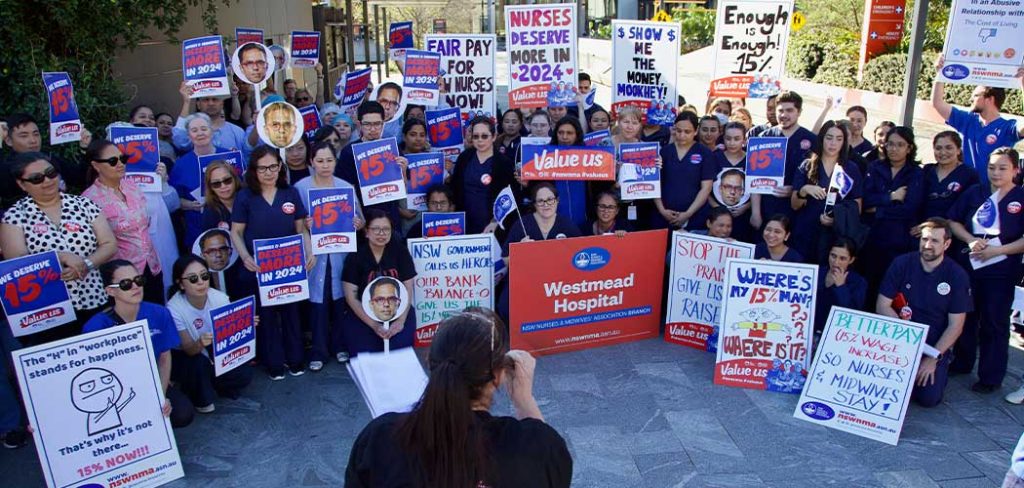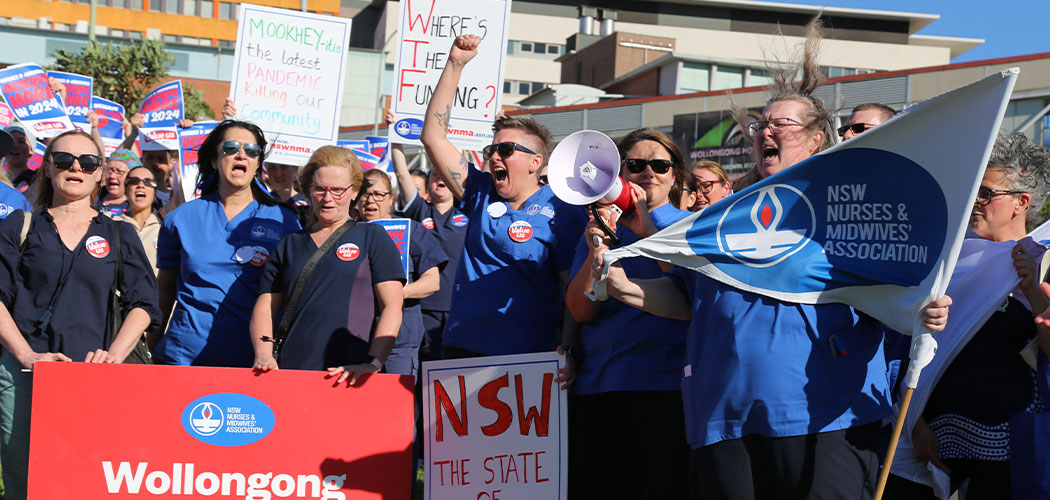Fed up with being ignored by the state government, thousands of public sector nurses and midwives from across New South Wales will walk off the job tomorrow as they ramp up their fight for a fair pay increase.
The action builds on the NSW Nurses and Midwives’ Association (NSWNMA) push for a 15% one-year pay increase, plus superannuation, for all nurses and midwives. Last week, the NSWNMA wrote to Health Minister Ryan Park, escalating its demands. The Minns Government’s failure to meet a deadline to come back to the table with an improved offer triggered tomorrow’s mass industrial action.
Public sector nurses and midwives will strike for more than 12 hours, beginning at 7am, in a bid to send the NSW Government a loud message. Minimal, life-preserving staff will be maintained in public hospitals and health services during the strike.
NSWNMA General Secretary Shaye Candish said members were sick and tired of being undervalued, overworked and ignored. Despite jumping through every hoop asked, even including finding the savings needed to fund the pay rise, the government has continually ruled out the union’s demands as unaffordable, she added.

“The state government is not bargaining in good faith. Not once in our 10 negotiation meetings has the government sat at the table and discussed nurses and midwives’ pay. That’s despite us finding significant cost savings through our Rapid Business Case,” said Ms Candish.
“Nurses and midwives shouldn’t have to foot the bill for safe staffing ratios in our public hospitals and forgo a decent pay rise – there’s no other workforce that’s been required to pay for their own resources.”
Ms Candish said it was clear that the NSW government was choosing to pay the state’s nurses and midwives the lowest wages across the country
High levels of exhaustion and a decade of wage suppression, coupled with rising cost-of-living pressures, have taken a considerable toll on the nursing and midwifery workforce across our state. Left unaddressed, it will continue to see the public health system fall apart, she said.
“This campaign is now reaching a point where we have to escalate to demand change, and that change is only going to come when we stand in solidarity together to demonstrate to the government that we will not tolerate being ignored,” Ms Candish said in an address to members last week.
“We need to demonstrate to this government that we are not going away and that we demand to be valued and that we mean business.”









One Response
We are not supported by the general public, and on strike day I was told I was “selfish” by a patient waiting in emergency even though we were providing care with skeleton staff who were willing to remain at work in support of our colleagues who were demonstrating.
I’m wondering if in the inpatient settings, when we move to strike, family are notified the day before that there may be reduced staff numbers during industrial action and that they are welcome to come to the wards to assist their family members if willing. e.g. with meals, with mobility and any other support they would normally offer when at home. This might be a way of demonstrating the level of skill and dedication required by our profession to deliver safe and holistic care. This currently feels very undervalued.